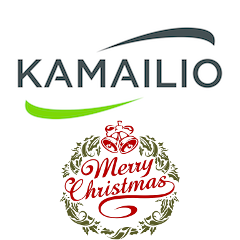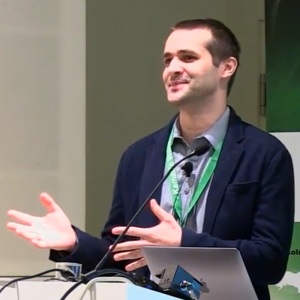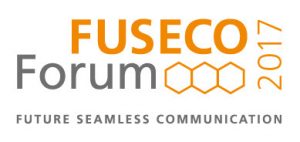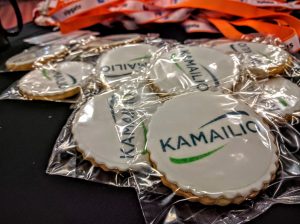FOSDEM is one of the world’s premier meetings of free software developers,
with over five thousand people attending each year. FOSDEM 2018
takes place 3-4 February 2018 in Brussels, Belgium
This email contains information about:
- Real-Time Communications dev-room and lounge
- speaking opportunities
- volunteering in the dev-room and lounge
- related events around FOSDEM, including the XMPP summit
- social events (the legendary FOSDEM Beer Night and Saturday night dinners
- provide endless networking opportunities)
- the Planet aggregation sites for RTC blogs
Call for participation – Real Time Communications (RTC)
The Real-Time dev-room and Real-Time lounge is about all things involving
real-time communication, including: XMPP, SIP, WebRTC, telephony,
mobile VoIP, codecs, peer-to-peer, privacy and encryption. The dev-room
is a successor to the previous XMPP and telephony dev-rooms.
We are looking for speakers for the dev-room and volunteers and
participants for the tables in the Real-Time lounge.
The dev-room is only on Sunday, 4th of February 2018. The lounge will
be present for both days.
To discuss the dev-room and lounge, please join the FSFE-sponsored
Free RTC mailing list: https://lists.fsfe.org/mailman/listinfo/free-rtc
To be kept aware of major developments in Free RTC, without being on the
discussion list, please join the Free-RTC Announce list:
Speaking Opportunities
Note: if you used FOSDEM Pentabarf before, please use the same account/username
Real-Time Communications dev-room: deadline 23:59 UTC on 30th of November.
Please use the Pentabarf system to submit a talk proposal for the
dev-room. On the “General” tab, please look for the “Track” option and
choose “Real Time Communications devroom”.
Other dev-rooms and lightning talks: some speakers may find their topic is
in the scope of more than one dev-room. It is encouraged to apply to more
than one dev-room and also consider proposing a lightning talk, but please
be kind enough to tell us if you do this by filling out the notes in the form.
You can find the full list of dev-rooms at:
and apply for a lightning talk at
Main track: the deadline for main track presentations is 23:59 UTC
3rd of November. Leading developers in the Real-Time Communications
field are encouraged to consider submitting a presentation to
the main track at:
First-time Speaking?
FOSDEM dev-rooms are a welcoming environment for people who have never
given a talk before. Please feel free to contact the dev-room administrators
personally if you would like to ask any questions about it.
Submission Guidelines
The Pentabarf system will ask for many of the essential details. Please
remember to re-use your account from previous years if you have one.
In the “Submission notes”, please tell us about:
- the purpose of your talk
- any other talk applications (dev-rooms, lightning talks, main track)
- availability constraints and special needs
You can use HTML and links in your bio, abstract and description.
If you maintain a blog, please consider providing us with the
URL of a feed with posts tagged for your RTC-related work.
We will be looking for relevance to the conference and dev-room themes,
presentations aimed at developers of free and open source software about
RTC-related topics.
Please feel free to suggest a duration between 20 minutes and 55 minutes
but note that the final decision on talk durations will be made by the
dev-room administrators based on the number of received proposals.
As the two previous dev-rooms have been combined into one, we may decide to
give shorter slots than in previous years so that more speakers can
participate.
Please note FOSDEM aims to record and live-stream all talks.
The CC-BY license is used.
Volunteers Needed
To make the dev-room and lounge run successfully, we are looking for
volunteers:
- FOSDEM provides video recording equipment and live streaming,
volunteers are needed to assist in this
- organizing one or more restaurant bookings (depending upon number of
participants) for the evening of Saturday, 3rd of February
- participation in the Real-Time lounge
- helping attract sponsorship funds for the dev-room to pay for the
Saturday night dinner and any other expenses
- circulating this Call for Participation to other mailing lists
Related Events – XMPP And RTC Summits
Social Events And Dinners
The traditional FOSDEM beer night occurs on Friday, 2nd of February.
On Saturday night, there are usually dinners associated with
each of the dev-rooms. Most restaurants in Brussels are not so
large so these dinners have space constraints and reservations are
essential. Please subscribe to the Free-RTC mailing list for
further details about the Saturday night dinner options and how
you can register for a seat:
Spread The Word And Discuss
If you know of any mailing lists where this CfP would be relevant, please
forward this email. If this dev-room excites you, please blog or microblog
about it, especially if you are submitting a talk.
If you regularly blog about RTC topics, please send details about your
blog to the planet site administrators:
Please also link to the Planet sites from your own blog or web site as
this helps everybody in the free real-time communications community.
Contact
For any private queries, contact us directly using the address
fosdem-rtc-admin@freertc.org and for any other queries please ask on
the Free-RTC mailing list:
The dev-room administration team:
Saúl Ibarra Corretgé
Iain R. Learmonth
Ralph Meijer
Daniel-Constantin Mierla
Daniel Pocock










